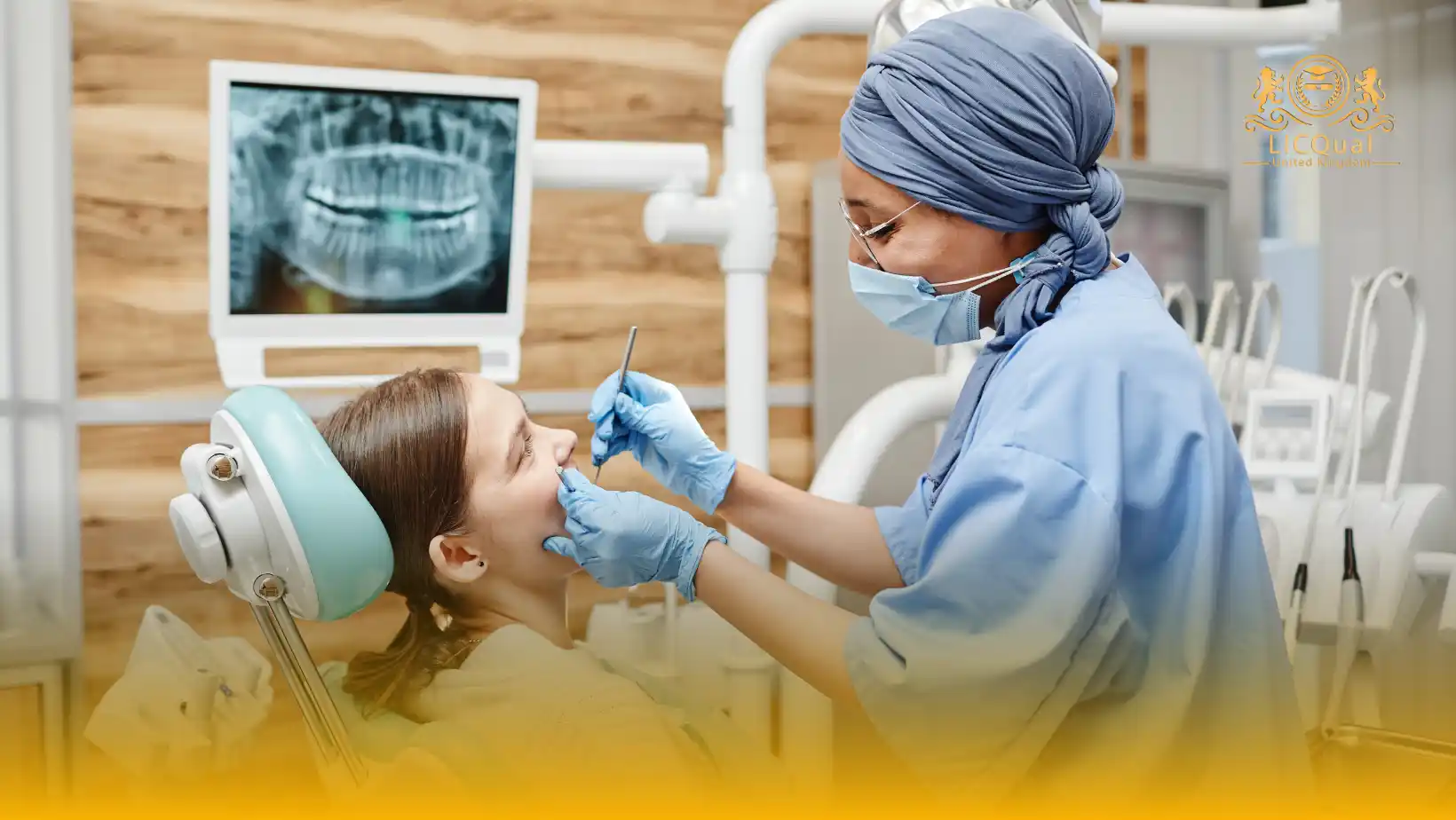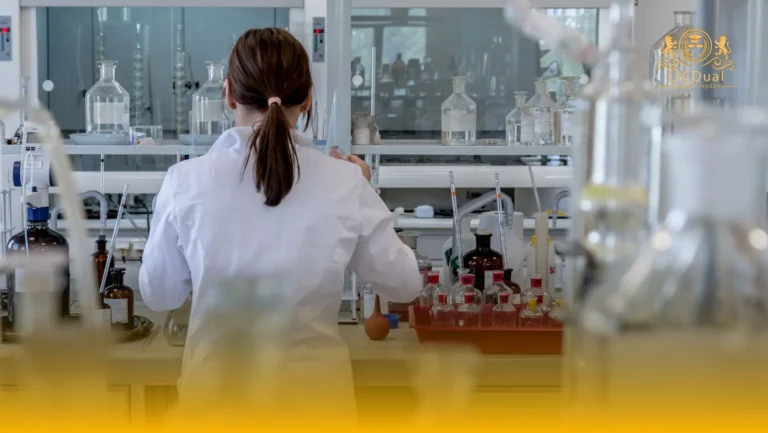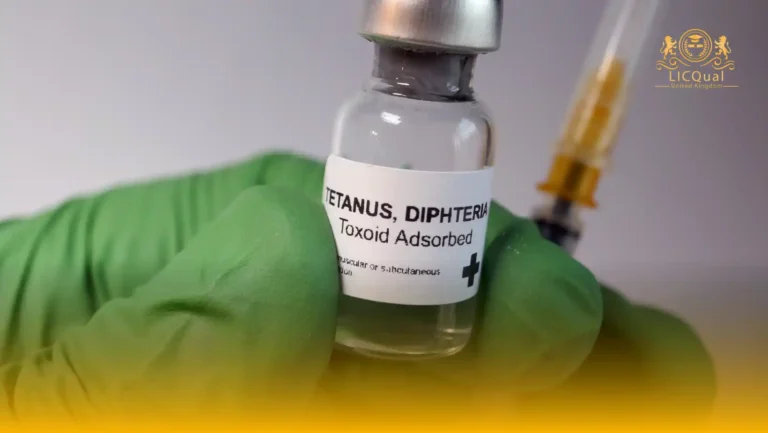The LICQual Level 3 Certificate in Dental Public Health is a highly relevant professional qualification, specifically tailored for dental and public health practitioners committed to advancing their careers—this is not a programme for entry-level or newly qualified individuals. Designed to enrich existing expertise, it supports learners in broadening their knowledge of oral health strategies at a population level, enhancing their role in public health promotion, and securing meaningful Continuing Professional Development (CPD) credits.
This qualification integrates foundational and emerging public health principles with practical application. Learners will explore epidemiological approaches, community oral health assessment, preventive programme planning, and health policy, all through an evidence-based lens. The course elevates professional competency, enabling learners to contribute effectively to oral health initiatives, policy development, and community well-being.
Centres delivering this qualification must uphold rigorous standards. They are required to have qualified and competent staff, skilled in both academic instruction and public health practice. Furthermore, centres must provide comprehensive learning materials, up-to-date resources, and suitable environments for both theoretical learning and practical application. Such preparedness ensures learners receive high-quality education and the support needed for success.
The LICQual Level 3 Certificate in Dental Public Health offers an excellent pathway for experienced professionals to deepen their expertise, meet CPD objectives, and elevate their public health impact—when delivered by centres committed to excellence.
Course Overview
Qualification Title
LICQual Level 3 Certificate in Dental Public Health
Total Units
6
Total Credits
24
GLH
120
Qualification #
LICQ2200639
Qualification Specification
To enroll in the LICQual Level 3 Certificate in Dental Public Health , applicants must meet the following criteria:
|
Qualification# |
Unit Title |
Credits |
GLH |
|---|---|---|---|
|
LICQ2200639-1 |
Principles of Dental Public Health |
4 |
20 |
|
LICQ2200639-2 |
Epidemiology & Oral Health Surveillance |
4 |
20 |
|
LICQ2200639-3 |
Health Promotion & Community Programmes |
4 |
20 |
|
LICQ2200639-4 |
Health Systems, Policy & Service Delivery |
4 |
20 |
|
LICQ2200639-5 |
Research Methods & Evidence-Based Practice |
4 |
20 |
|
LICQ2200639-6 |
Leadership, Advocacy & Ethics in Public Health |
4 |
20 |
By the end of this course, learners will be able to:
1. Principles of Dental Public Health
By the end of this unit, learners will be able to:
- Explain the fundamental principles and scope of dental public health.
- Analyse key social, environmental, and behavioural determinants of oral health.
- Apply public health ethics to decision-making in dental practice.
2. Epidemiology & Oral Health Surveillance
By the end of this unit, learners will be able to:
- Use epidemiological tools to measure oral health status and disease prevalence.
- Interpret data from oral health surveys and surveillance systems.
- Apply population-based oral health indicators to inform planning and policy.
3. Health Promotion & Community Programmes
By the end of this unit, learners will be able to:
- Design and implement evidence-based oral health promotion strategies.
- Evaluate the effectiveness of school and community dental health programmes.
- Apply behaviour-change models to improve community oral health outcomes.
4. Health Systems, Policy & Service Delivery
By the end of this unit, learners will be able to:
- Assess different healthcare models and their impact on oral health service delivery.
- Explain the process of dental health policy development and implementation.
- Plan resource allocation for effective community dental services.
5. Research Methods & Evidence-Based Practice
By the end of this unit, learners will be able to:
- Apply appropriate research designs in dental public health studies.
- Critically appraise scientific literature to support clinical and public health decisions.
- Integrate evidence-based approaches into Continuing Professional Development (CPD) plans.
6. Leadership, Advocacy & Ethics in Public Health
By the end of this unit, learners will be able to:
- Demonstrate leadership skills in managing dental public health projects.
- Advocate for policies that improve community and population oral health.
- Apply cultural competence and ethical principles to diverse public health contexts.
The LICQual Level 3 Certificate in Dental Public Health is designed for dental and healthcare professionals aiming to specialize in community oral health. This course is perfect for those looking to implement preventive strategies, improve population dental outcomes, and enhance their professional credentials. It suits individuals working in public health, community clinics, and educational programs.
1. Dental Nurses Seeking Public Health Specialization
- Ideal for dental nurses wanting to expand their skills into community oral health.
- Learn preventive care strategies for populations.
- Gain practical experience in oral health promotion.
- Understand epidemiology and dental health assessment.
- Enhance patient communication and education skills.
2. Dental Assistants Looking for Career Advancement
- Perfect for dental assistants aiming for a specialized role.
- Develop skills in planning and supporting public health initiatives.
- Strengthen knowledge of preventive dentistry practices.
- Gain confidence in implementing community programs.
- Acquire recognized certification to enhance employability.
3. Aspiring Public Health Dental Practitioners
- Suitable for individuals entering dental public health roles.
- Learn to assess oral health needs in communities.
- Gain expertise in designing and evaluating interventions.
- Build competence in evidence-based preventive care.
- Receive professional recognition for specialized skills.
4. Experienced Dental Professionals Seeking Upskilling
- For dentists or hygienists wanting to specialize in public health.
- Enhance knowledge of population oral health management.
- Understand regulatory and ethical standards in public health.
- Develop mentoring skills for community dental programs.
- Strengthen career prospects in public health dentistry.
5. Community Clinic Staff
- Ideal for dental teams in schools, clinics, or community centers.
- Improve ability to implement oral health programs.
- Enhance patient engagement and preventive care delivery.
- Ensure compliance with safety and professional standards.
- Gain a recognized credential for professional growth.
6. Healthcare Professionals in Public Health Departments
- Tailored for professionals working in government or NGO health programs.
- Learn to plan and monitor community dental initiatives.
- Develop skills in evaluating program outcomes.
- Collaborate effectively with multidisciplinary teams.
- Gain certification recognized in public health settings.
7. Students and Career Changers Entering Dentistry
- Perfect for individuals transitioning into dental or public health careers.
- Gain foundational knowledge in dental public health theory and practice.
- Build hands-on skills for community health programs.
- Increase employability in clinics and public health projects.
- Receive a globally recognized Level 3 certification for career advancement.
The LICQual Level 3 Certificate in Dental Public Health equips professionals to deliver safe, effective, and high-quality community oral health interventions while advancing their careers.
Centres delivering this advanced qualification must meet high standards to ensure quality training and learner success. The following requirements apply:
- Qualified and Experienced Staff
- All teaching and assessment must be conducted by professionals with recognised qualifications in dentistry, dental public health, or related fields.
- Staff should have current, relevant experience and a proven ability to deliver both theoretical and practical training to advanced learners.
- Adequate Learning Resources
- Centres must provide access to up-to-date learning materials, reference texts, and evidence-based resources on dental public health.
- Digital platforms and multimedia tools should be available to support blended or flexible learning delivery.
- Appropriate Facilities and Equipment
- Training should take place in environments that meet industry standards for safety, hygiene, and accessibility.
- Essential tools, technology, and resources must be available for effective teaching and practical demonstrations.
- Assessment and Quality Assurance
- Centres must have structured assessment methods in line with awarding body requirements.
- Internal quality assurance procedures must be in place to maintain fairness, accuracy, and consistency in assessment.
- Learner Support Services
- Academic guidance, CPD planning, and pastoral support should be available to all learners.
- Centres must ensure inclusive access, adhering to equality and diversity regulations.
By meeting these requirements, centres can provide a high-quality learning experience that equips professionals with the skills and knowledge to improve oral health at a community and population level.
Assessment and Verification
All units within this qualification are subject to internal assessment by the approved centre and external verification by LICQual. The qualification follows a criterion-referenced assessment approach, ensuring that learners meet all specified learning outcomes.
To achieve a ‘Pass’ in any unit, learners must provide valid, sufficient, and authentic evidence demonstrating their attainment of all learning outcomes and compliance with the prescribed assessment criteria. The Assessor is responsible for evaluating the evidence and determining whether the learner has successfully met the required standards.
Assessors must maintain a clear and comprehensive audit trail, documenting the basis for their assessment decisions to ensure transparency, consistency, and compliance with quality assurance requirements.







